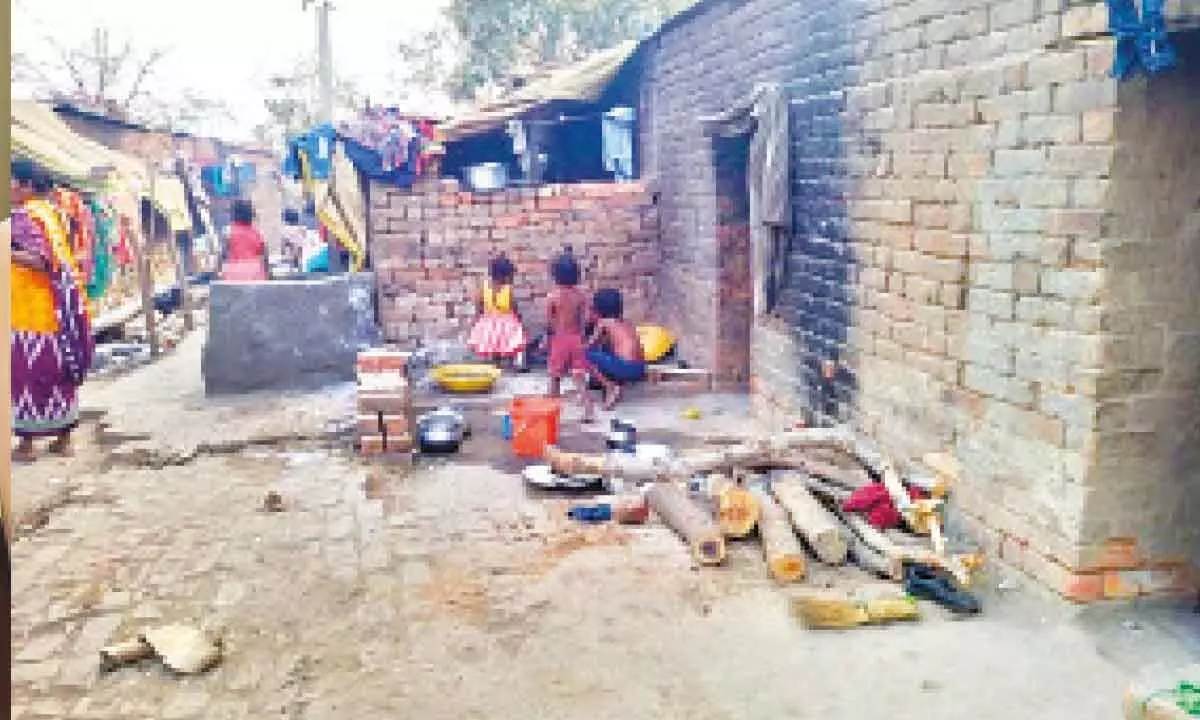Workers in brick kilns, mainly from Odisha, are facing harsh conditions that resemble modern-day slavery. They endure torment and deprivation without basic human rights or labor protections. Owners impose strict measures that trap workers in these kilns, making it difficult for them to escape. The lack of specific labor laws for brick kiln workers worsens their vulnerability and exposes them to hardships and abuse.
Recent incidents, like workers being beaten in a kiln in Ramagiri mandal and 20 people falling ill, with two deaths due to contaminated food in another kiln in Peddapalli mandal, highlight the dire situation faced by these workers. Authorities’ response to these issues has been inadequate, showing a failure to address the problem effectively. Public outcry and demands for action have increased, urging officials to hold kiln owners accountable for flouting regulations.
In Peddapalli district alone, around 130 brick kilns operate, with many ignoring established norms. The rise in brick kilns is fueled by the availability of quality clay and resources like NTPC ash, leading to the growth of this exploitative industry. The unchecked expansion of brick kilns, often linked to political affiliations, has created a culture of impunity that shields owners from responsibility. Allegations of employing minors, neglecting facilities, and abusing workers, including women, further highlight the grim reality within these establishments.
Marwadi Sudarshan, State Dalit Liberation Front General Secretary, expressed concern about the lawlessness and violence in Peddapalli’s brick kilns. He stressed the need for regulatory enforcement to address irregularities and ensure worker welfare. Many workers suffer from poor living conditions, lack of quality food and clean water, leading to frequent illnesses among them and their children. Despite accidents and incidents on work sites involving children, kiln owners have not been held accountable for their actions.











